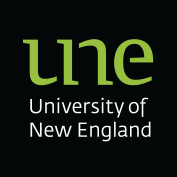Update:
Dr Peter McClenaghan and his colleague Dr Kerrie Ikin recently presented their invited paper at the national conference held by ACER in Melbourne. The focus of the paper was on the three year consulting/research project with Parklea Public School in Sydney. The project “Leading Empowered Evaluations to Develop Trust and Improve Learning” included a review of the strategic plan and the values and culture of the school with teachers, executive, pupils, and parents participating.
The success of this project has resulted in Parklea inviting Dr Ikin and Dr McClenaghan to participate in the next three year planning cycle.
Dr McClenaghan and Dr Ikin have been accepted to present papers at the American Evaluation Association National conference in Washington DC in November 2017. The first paper will report on the latest findings from the Parklea project and the second paper will present findings from Dr McClenaghan’s ongoing research on student leadership development at Charles Darwin University.
June 2017:
Dr Peter McClenaghan and Dr Kerrie Ikin will present at the upcoming ACER Research Conference speaking on”Leading empowered evaluations to develop trust and improve learning: Insights from qualitative research”.
Conference abstract:
What does ‘empowering teachers-as-evaluators’ mean in whole-school strategic planning and evaluation? Our work seeks to develop and empower teachers as whole-of-school evaluators to embrace ownership of the school’s plan and directions, build communities of practice, create transparency, openness and trust, and ultimately improve student learning outcomes.
Our previous research in whole-school qualitative empowerment evaluation showed that principals who were fully engaged in their schools’ evaluations were more likely to be influenced by the evaluation process, use the evaluation results and build evaluation capacity than those who merely participated as a guest. They engaged in double-loop learning. We further found that key values, such as trust, acted as catalysts for evaluation influence. This raised questions as to whether the influences on principals from this research would also apply to all staff if they were similarly engaged in their whole-school’s evaluation.
We describe one school’s ongoing journey since 2015 in such a process and our research findings to date. Our findings draw on observation, interview and questionnaire data from all staff at all levels in the school. The research reveals that as staff members develop transparency and trust in the process and with each other, their understanding of and input into the school’s plan and directions are increasing and their evaluation capacity is being built.



Recent Comments